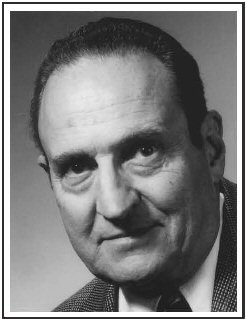Orthomolecular Medicine Hall of Fame
Inducted 2006| “Max Vogel was among the first general orthomolecular practitioners in Canada.” |
| —Abram Hoffer, M.D., Ph.D. |
Max Vogel was the first family physician to embrace the practice of orthomolecular medicine in 1960 and became one of its most successful physicians who continued against the usual odds facing those who practice outside the box. During WWII, Max became a physician in the accelerated course at Queens University, following pre-clinical years at the University of Saskatchewan, Saskatoon, 1939 to 1942. He served as Captain with Canadian armed forces in England, then volunteered for duty in the Pacific, specializing in tropical medicine at Walter Reed Hospital in Washington, DC.
In 1955, after obtaining more training in Obstetrics and Gynecology in New York, he began practice in Calgary, where he retired in 1997. Max fought tirelessly for causes in which he believed and when he became convinced of the value of using large doses of vitamins for treatment of the schizophrenias and other diseases he became involved in trying to educate the profession, the public and the government.
Years ago, the government of Alberta announced that patients receiving vitamins would not be covered by Medicare. With his family and friends, Max organized a massive effort to petition the government and after thousands of names had been submitted the government reversed its decision. When Max was on the associate staff of the department of psychiatry at Calgary Hospital, a new Director tried to get him fired because of his controversial (orthomolecular) practices. Again, Max circulated a petition which was signed by 200 staff members. At the conclusion of this debate the Director left the hospital. One of his colleagues wrote “Apart from Max’s tremendous intellectual capacity and his enthusiasm for life and challenges, I must admit I respected him as a rebel. His reputation was of a person who constantly challenged the status quo.”
Max was a long standing member the Board of Directors of the Canadian Schizophrenia Foundation and served on the Editorial Review Board of the Journal of Orthomolecular Medicine. He was presented with the Lifetime Achievement Award by the International Society of Orthomolecular Medicine in 2002.



